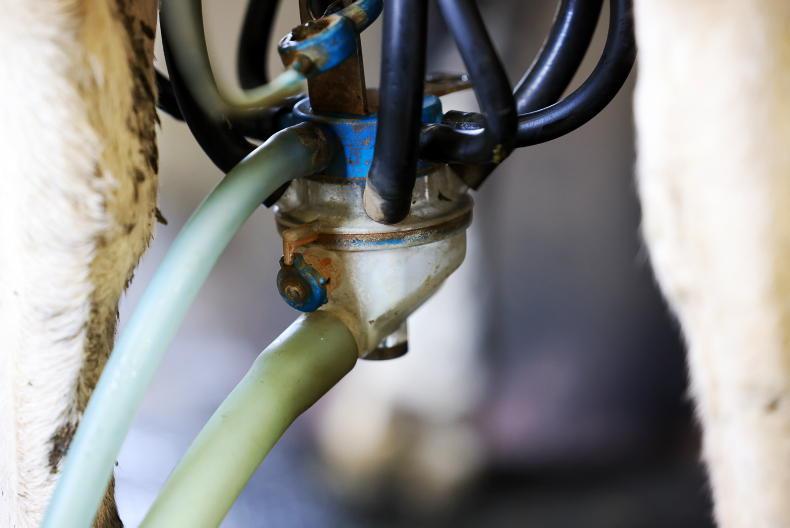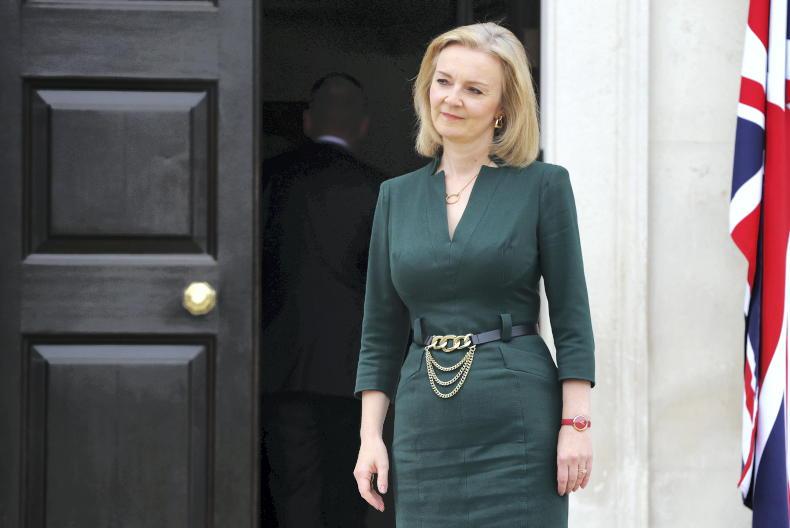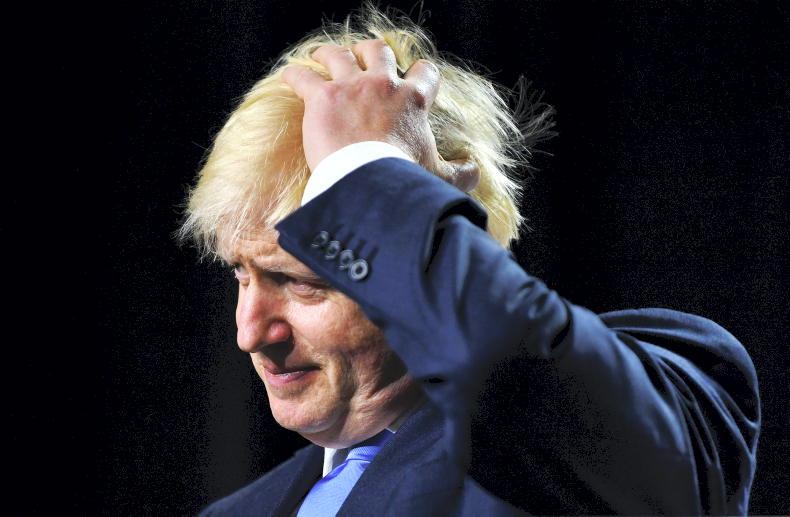Speaking at last week’s Irish Farmers Journal Future of Europe event, former European Commissioner for Agriculture Franz Fischler suggested that “everybody would agree if I say there is room for improvement in the CAP” and that the best way to do this was to have a midterm review.
He is best known for a major, achieved after two attempts, which introduced decoupling of payments to farmers.
Almost two decades on since he left Brussels, Fischler continues to display a remarkable in-depth knowledge of agriculture and wider rural issues, but was anxious not to be advising his successors.
Midterm review
This, however, didn’t prevent him suggesting what a midterm review should look into and there is need to make policy decisions on the basis of analysis and science, not the loudest lobby voice.
Whether intended or not, this could be interpreted two ways. Historically the farm lobby was probably the strongest lobby in Brussels, certainly in Fischler’s time, but more recently that mantle has passed to the environmental lobby which has clearly shaped the most recent CAP.
Within a midterm review, Fischler suggested that the Unfair Trading Practices (UTP), a product of the Phil Hogan era, should be revisited with a view to progressing the more ambitious elements that haven’t been legislated for.
He also suggested that the role of rural development has to be further advanced in an attempt to tackle rural depopulation across the EU. While he sees agriculture as being “absolutely necessary” for rural areas, they cannot be dependent on agriculture alone.
He referenced the need to progress the Cork 2 policy, another product of the Hogan era which advocated the need for rural services and infrastructure to match urban areas, with high-speed broadband an essential element.
Energy and climate
The other issue Fischler advocated exploring in a CAP review is agriculture’s place in energy, climate and biodiversity. This led neatly to the introduction of Christian Holzleitner, head of unit in DG Climate to the debate. He advocated that EU agriculture and forestry could be climate neutral by 2035, based on the ability of land and forests to sequester carbon emissions to a level matching those that are produced by farming.
He went on to explain that the EU was in the process of putting in place a plan to establish the baseline figures for carbon sequestration on farms. Currently, it is only emissions from agriculture that are counted, with the carbon sequestered not offset against these.
Fischler intervened at this point to question the development of policy that would oblige farmers to measure without the motivation of payment. Provision for payment, he believed, should be developed parallel to measuring and he also cautioned that messaging from Brussels must be clearer.
He gave the example of ambitions to increase forestry while DG environment is advocating 30% setaside in forestry as mixed messaging which does nothing for farmer confidence.
Fischler rejected the idea of Europe producing food to feed Africa, advocating that instead of production we should give them knowledge to produce their own instead. However, he did identify a growing middle-class population there as a market that exporting countries like Ireland could develop.
Worst in class
The issue of nitrogen use in farming was introduced by the Dutch Ambassador, Adriaan Palm, who confessed that the Netherlands was the worst in class when it comes to delivering on the EU nitrates directive. Such is the extent of the problem, the ambassador explained that in some cases the Dutch government would have to relocate farms and as a last resort buy farmers out.
Whether you agree or disagree with the views of Franz Fischler, there is no denying that he remains a strategic thinker who is well informed on agriculture and rural society in the EU. Nobody could take issue for the need to make policy based on analysis and science, given how the incoming CAP was shaped by popular sentiment as opposed to analysing the consequences – subsequently revealed in three separate impact assessments. The need for clarity and avoidance of mixed messaging between different areas of the EU will also resonate with farmers when it comes to environmental policy. In Ireland a farmer who has invested to expand could have to cut stock numbers to meet future emissions targets which would have huge consequences for their ability to make repayments.
Farmers will also identify with Fischler’s continuous improvement logic through a midterm review.
Commissioner 1995-2004.Major CAP reform, introduced decoupled payments.Advocated a mid term review of incoming CAP.Wants UTP revisited.Focus on wider rural policy.
Speaking at last week’s Irish Farmers Journal Future of Europe event, former European Commissioner for Agriculture Franz Fischler suggested that “everybody would agree if I say there is room for improvement in the CAP” and that the best way to do this was to have a midterm review.
He is best known for a major, achieved after two attempts, which introduced decoupling of payments to farmers.
Almost two decades on since he left Brussels, Fischler continues to display a remarkable in-depth knowledge of agriculture and wider rural issues, but was anxious not to be advising his successors.
Midterm review
This, however, didn’t prevent him suggesting what a midterm review should look into and there is need to make policy decisions on the basis of analysis and science, not the loudest lobby voice.
Whether intended or not, this could be interpreted two ways. Historically the farm lobby was probably the strongest lobby in Brussels, certainly in Fischler’s time, but more recently that mantle has passed to the environmental lobby which has clearly shaped the most recent CAP.
Within a midterm review, Fischler suggested that the Unfair Trading Practices (UTP), a product of the Phil Hogan era, should be revisited with a view to progressing the more ambitious elements that haven’t been legislated for.
He also suggested that the role of rural development has to be further advanced in an attempt to tackle rural depopulation across the EU. While he sees agriculture as being “absolutely necessary” for rural areas, they cannot be dependent on agriculture alone.
He referenced the need to progress the Cork 2 policy, another product of the Hogan era which advocated the need for rural services and infrastructure to match urban areas, with high-speed broadband an essential element.
Energy and climate
The other issue Fischler advocated exploring in a CAP review is agriculture’s place in energy, climate and biodiversity. This led neatly to the introduction of Christian Holzleitner, head of unit in DG Climate to the debate. He advocated that EU agriculture and forestry could be climate neutral by 2035, based on the ability of land and forests to sequester carbon emissions to a level matching those that are produced by farming.
He went on to explain that the EU was in the process of putting in place a plan to establish the baseline figures for carbon sequestration on farms. Currently, it is only emissions from agriculture that are counted, with the carbon sequestered not offset against these.
Fischler intervened at this point to question the development of policy that would oblige farmers to measure without the motivation of payment. Provision for payment, he believed, should be developed parallel to measuring and he also cautioned that messaging from Brussels must be clearer.
He gave the example of ambitions to increase forestry while DG environment is advocating 30% setaside in forestry as mixed messaging which does nothing for farmer confidence.
Fischler rejected the idea of Europe producing food to feed Africa, advocating that instead of production we should give them knowledge to produce their own instead. However, he did identify a growing middle-class population there as a market that exporting countries like Ireland could develop.
Worst in class
The issue of nitrogen use in farming was introduced by the Dutch Ambassador, Adriaan Palm, who confessed that the Netherlands was the worst in class when it comes to delivering on the EU nitrates directive. Such is the extent of the problem, the ambassador explained that in some cases the Dutch government would have to relocate farms and as a last resort buy farmers out.
Whether you agree or disagree with the views of Franz Fischler, there is no denying that he remains a strategic thinker who is well informed on agriculture and rural society in the EU. Nobody could take issue for the need to make policy based on analysis and science, given how the incoming CAP was shaped by popular sentiment as opposed to analysing the consequences – subsequently revealed in three separate impact assessments. The need for clarity and avoidance of mixed messaging between different areas of the EU will also resonate with farmers when it comes to environmental policy. In Ireland a farmer who has invested to expand could have to cut stock numbers to meet future emissions targets which would have huge consequences for their ability to make repayments.
Farmers will also identify with Fischler’s continuous improvement logic through a midterm review.
Commissioner 1995-2004.Major CAP reform, introduced decoupled payments.Advocated a mid term review of incoming CAP.Wants UTP revisited.Focus on wider rural policy. 








SHARING OPTIONS